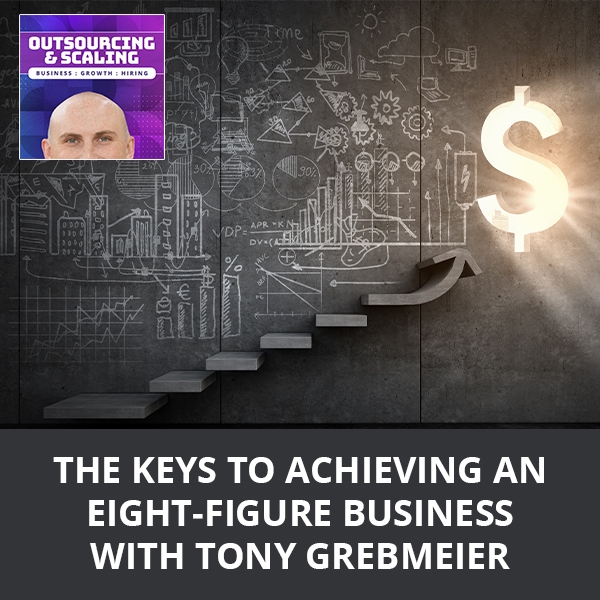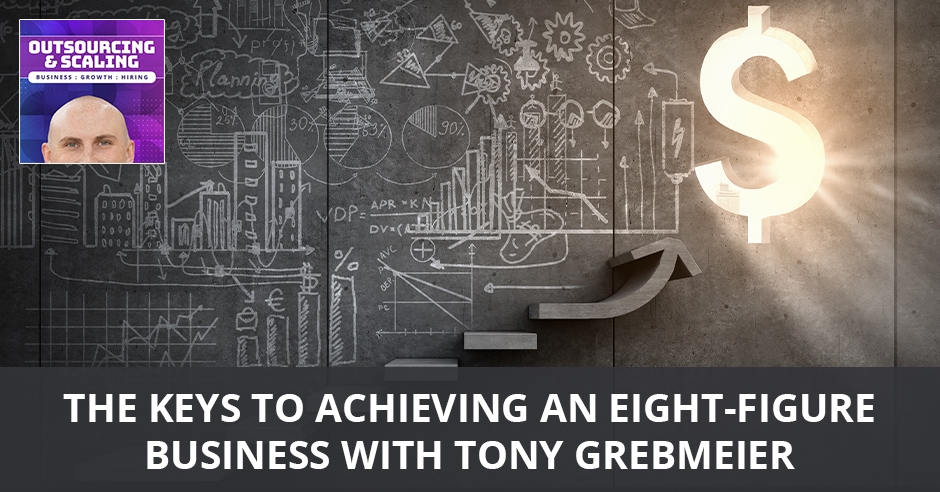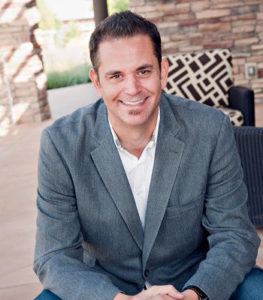


—
Listen to the podcast here:
[smart_track_player url=”https://www.podetize.com/statsapi/www.podetize.com/wp-content/uploads/fileuploads/11-5b145ef137b51b3d1af0633e9305c43d/07/2019/6fa74d465d47d25d1eede2bdc80c22a4.mp3″ title=”The Keys To Achieving An Eight-Figure Business with Tony Grebmeier” artist=”Nathan Hirsch” image=”https://freeup.net/wp-content/uploads/2019/04/OAS.png” ]
Download the audio file here.
The Keys To Achieving An Eight-Figure Business with Tony Grebmeier
I’m here with Tony Grebmeier. How are you doing, Tony?
I am fantastic. How about you?
I’m doing great. For those of you that don’t know, Tony has run multiple eight-figure businesses. He’s been running businesses online since 1996. I was only seven years old when you started selling online. We’re going to talk about all of that. First, let’s take a gigantic step back. What was you like growing up? Were you a straight-A student? Were you a rebel? Did you know you want to be an entrepreneur?
I wasn’t a great student. I didn’t have the attention to listen to what anybody was trying to tell me to do, so I was always in the back of the classroom causing trouble. The only problem was my mom was a schoolteacher in the district. I found myself in the principal’s office all the time. My mom always knew what I was up to. I got in trouble a lot as a kid. It wasn’t until high school where I made the switch in my mind to try to figure out, “I’ve got a talent. I’m going to go use it.” That’s where my entrepreneurial journey began.
My dad was a teacher at my high school. I always felt like, secretly, the years that I was there were his least favorite years because I was the same way. I was always getting in trouble, messing with teachers and making him look bad. It’s funny that we both come from that. You started in 1996. What was it like in 1996? I can’t even imagine the internet back then.
Running events is not a way to tell people what we do, but to showcase who we network with.
If you’ve seen the movie Captain Marvel, there’s a scene there where they show AltaVista. It was a search engine. There were also Lycos, Excite and Yahoo. That was it. That’s what I found online. Everybody had heard of AOL at the time. It was slow and archaic. People were innovative and creative. They were mainly in the adult internet space. They were bringing all the technology to what we use now with video conferencing, etc. I was working at a radio station in San Jose as a DJ by day and entrepreneur by night. I was teaching myself how to blog, how to build websites and how to do SEO. It’s starting from the foundation of, “Anything could be created,” and what is it that I want to play with.
You started this marketing agency. How did you get your first client? A lot of people out there are running agencies or they want to run agencies. What was that like?
One of the pieces that I’ve always used to my advantage and anybody can use it, is stick your hand out and tell people what you do. Many people think, “It’s because I run an online business, I’m just going to advertise online.” I’m like, “No.” Tell your neighbor and friends. Go to dinner and say, “Who’s running your marketing for your website? Do you guys even have an SEO person?” The greatest gift we have is a mobile device that’s more powerful than the first moon landing. The ship that took everybody to the moon didn’t have the technology your cell phone has. Think about that. You can sit at your table, google the establishment you’re at, look at their Google ratings and make a compliment or say, “I would love to do a free analysis for you.” That’s what I did then and what I still do now to help businesses.
You always have that networking thing going. Whenever I see you, you’re always talking to high-level people. I’ve seen you run dinners and other events. Talk to me a little bit about how important that’s been and how you got into doing that.
I was a guest at many events. I am always in observation mode. I’m always looking around. “What could I do? If I was running this business, what would I switch up?” I use that as my true north. I’m like, “If this was my business, what would I change? How could I improve it without spending any money?” I’m always thinking about that. Networking has always been pretty straightforward and easy for me. It’s because I stick my hand out first instead of having it in my pocket, I’m introducing myself. I’m getting to know people and adding value before I ask for anything. We also get that messed up. We’re all like, “I run an agency. You should come to work with me.” I’m like, “They don’t maybe want to.” How could I add value to them to give them the piece that causes them to be curious? I’m like, “What would Tony do? What would that company be able to help me to do?”

Running events have been a way not to have to tell people what we do, but to showcase who we network with. It’s multiple seven-figure and eight-figure businesses. Being around seven, eight and nine-figure entrepreneurs who run those businesses, other people go, “He must be doing something right. When I google his name, nothing bad comes up. I want to learn more about that guy. Has he run a business for eighteen years? He has longevity in an industry.” All of those things have been true benefits. What you’re doing with your show is a great value-add because when someone searches your name, they’re going to see your name plus all of these amazing people you’ve interviewed along the way that adds more credibility to who you are.
How did you get into doing your podcast? I’ve been on it twice. What was the initial goal? How long ago did you start it?
My initial goal was, “What is podcasting?” By 2015, I had heard enough podcasts and I’m like, “Do I really want to do this?” Because I came from the radio and I hung up the headphones a few years earlier. A friend of mine was talking, Dan Meredith, another buddy of mine, Sammy Taggart and Peter Lynch. We were all in a conversation talking about the power of podcasting. I said, “I’ve been thinking about launching one because of radio and my love for business and people. Maybe I’ll do that.” I went home on Friday. By Monday, I pushed the show out with three episodes. I’ve been asked, “How was it?” I’m like, “It’s because I’m a perfectionist in everything I do, I made sure it was as good as it could be. I made sure I worked hard on improving it all of the time.”
As an entrepreneur, I have two things going against me. One is I have a bright shiny disorder. When I see something new, I want to go try it. That’s a distraction. Number two is my buddy Ian Garlic always helps me to remember, “Version done is better than version none.” It was easy for me to launch a podcast. It was called Entrepreneur Unplugged. There’s a company that has that term and have had lawyers for years go after people using that word so I quickly changed it to Tony G because that was my radio broadcasting name. I did that for about a year or a year-and-a-half. I loved it. I transitioned into the BEFULFILLED show to align more with fulfillment and what we do for a living. I also am helping people to be fulfilled in their life. It was an alignment thing. At first, it was an Entrepreneur, “That should get me a lot of listeners,” and then, “It should be Tony G because that’s me.” I then made it more about helping people to find fulfillment in their life.
Let’s say there’s someone reading and they’re running a six-figure or seven-figure business. You’ve run multiple eight-figure businesses. They say, “I want to get to that level.” What would your advice be as someone who has seen business grow to those eight figures?
You have to first decide what you were built to do, not what you’re stuck doing.
I want to begin every day with the end in mind. “What is the goal?” Let’s say you have a twelve-month, a goal six-month goal, three-month goal or one-month goal. What do you want to achieve now? You have to ask yourself this. A great little way of analogy is Money Making Activities, MMA. Say your goal is to hit a certain target, like seven figures. You want to do $1 million. What are you doing? You chunk down 52 weeks. You get your number. You’re like, “I need to make $3,000. What am I doing to do that?” If you can’t say, “I know for sure,” you find yourself on probably a distraction channel, doing stuff that’s not helping you. When you get through your one month and you look back, you’re like, “I didn’t have my calendar filled. I didn’t have enough calls set up. I didn’t have enough meetings scheduled.
I didn’t make an appointment to send out creatives to potential opportunities or new customers.” We got to knock it ourselves. We have to get granular and say, “How important is this?” If you put out a goal in front of me and say, “What do you think we could do this year?” I’m like, “I’m shooting for $20 million. That’s my goal. I’m trying for $20 million. “How are you doing so far?” I’m like, “I’m up every single month since January and I’m doubling my target for next month. I’m going to get there.” How am I going to get there? I said, “I got a sales team.” If someone’s reading and doesn’t have a sales team, you got to remember that you probably are also your executive assistant, the janitor and also all these other people on your team. You have to get some things clear. You have first to decide what you were built to do, not what you’re stuck doing.
My buddy, Kevin Cohen, had mentioned these two words years ago. It helped me to take and put everything into this framework which is DrainersAndDrivers.com. I give away a five-day free mini course. You do it. I instruct you through some videos. What it’s built for is to help you figure out what’s draining you and your business and then what’s driving you in your business. Anything that’s draining you, Nathan’s company, FreeeUp, has got tons of outsourced resources, everything that you need to take those drainers off your table so you can spend more time in the drivers. Not everybody was built to be the driver on the bus. Some people were built to be the first passenger, the back passenger or the middle passenger.
Your job is to find the right people who need to be on the bus. You need to drop off the ones who aren’t helping you get to your destination as soon as you can at the quickest bus stop and say, “Thanks,” and you keep moving. Another hard lesson I learned is that the people who got you to seven or eight figures won’t take you to nine. There are certain people that are only built for so much. That’s where they’re at and it’s not that they’re at fault. It’s just that you need to know where people are best suited. Some people are great in the middle of the day. I’m a starter and a finisher but not the in-between stuff, that’s why I hire great people around me who are great at integrating and making all that stuff happen.
Is there a horror story or bad hiring experience that stands out that you can share with the audience?

Before using Drainers & Drivers, I’ve had some interesting hires. I don’t think anyone has ever been bad. I’ve had a guy show up in my warehouse after he was let go with a knife. He threatened, “Give me my job back or I’m going to cut you up.” In this day and age, the internet is a powerful tool, negative and positive. What I have seen is we need to do more at researching who we’re hiring. The NFL Draft doesn’t just draft a quarterback or a running back. They send out a full assessment to go figure out, “How were you in high school? What are your relationships like? What references do you keep as friends?” Try to vet as much as you possibly can, especially if they’re going to be taking any monetary gains in your company, needing access to sales data and marketing material. They have a hand in your company, so you want to do the best that you possibly can. We’ve had some interesting characters over the years. I had people who go out to the parking lot and smoke pot at lunch and they think it’s cool. We live in Colorado, but then they come back high. It’s not fun to work with them. They’re like, “Why are you yelling at me? I’m here to do my job.”
I have to remind myself to stop for a moment and say, “Who do I want to work with?” I hire for culture. You’re talented. You were able to apply for a job. You have a decent-looking résumé. You showed up in an interview. You look halfway nice. You keep good schedules. It means you can show up and do your job. If I can get that skill, I can teach the rest of how our business works. You culturally have to be a fit for our organization. If not, it’s like, “See you later.” We live by our core values and our mission statement behind the scenes. You got to be willing to stick your hand out. Anybody that walks in the company, you need to stop what you’re doing and walk over and introduce yourself. You need to make it a point where you’re focused on whatever it is in front of you. Usually, a new person, even if it’s a guest, a vendor or somebody walking by, we want to love on them first. It’s helping people to see you care.
You talked a lot about the people that you hire for six and seven figures. It’s not the same for people that you hire for eight. What are the types of people that you look for eight-figure businesses?
For eight-figure businesses, I want to see your résumé. I want to see references, case studies and people that you’ve helped. I want to network with them and talk to them. You probably have heard this somewhere on your line, “Success leaves clues.” Successful people have a formula that they believe in. It’s like hiring a GM for an organization. You hire a GM based on the results he’s proven. You’re not going to hire a coach that doesn’t have a winning record. If you did, you’re probably going to give him a job at a low first-year college that’s out in the middle of nowhere. If you see him take not a lot of skill that he’s got around him and turned it into a lot of talent, you know that he’s probably got a winning formula. I’m interested in finding those winning formulas. The people who are eight figures have a great reputation in the industry. It’s somebody who’s willing to jump on a jet and go fly in and close a deal. It’s somebody who is willing to stick their hand out and say, “What is it that can add value to your life?”
I’m not interested in people who need a lot to make them feel like it’s a great opportunity. Most of the deals I get done are over lunch, a handshake or their word. I’ve seen some of the biggest deals happen and I’ve never met them face-to-face other than international wired transfers back and forth. A lot of it is like what you and I are doing. We’ve hung out several times, but you build rapport and relationships with people. Once you look at their references and you make some phone calls, you realize that the person is super valuable and would be a great person to come on, either as a consultant or as a team member. I don’t hire employees. I hire people who come into an organization and say, “I can help you do that. What hat do you need me to wear? I know we’re thin in this one area. I got it. Don’t worry about it.” I hire people that I can count on, not people I have to babysit.
Successful people are very laser focused.
You said you hire people that you’ve never talked to before. A lot of people that have worked for me for years, I’d never met in person or I’ve only met once and that scares a lot of people. For some of the readers that haven’t been doing it for as long as we have, what advice would you have for hiring people remotely?
Number one is the ease of use in communication. How reliable is that person when you try to reach out to them? Does it take them a long time to get back? With the people that you outsource too, you also realize there are people who you can hire to work on your time zone, people who will sacrifice time in their country to get up for your hours. I look for that. I look for people who have great quality work. Outsourcing a web designer, a programmer or copy, I want to see samples of their work. I want to have them put a Zoom call together and join the call. I want them to walk me through maybe building a landing page, show me how they code or show me how they write copy.
Where did they come up with their ideas? What keyword analysis structures are they using? Where do they find their content? I want to see them do work with me. I also say, “You got an hour. Here’s the project. Go.” I give them small little projects and a small test frame. If they’re like, “I’m not going to do that,” I’m like, “Next.” You’re trying to find somebody who says, “I see your vision. I’m willing to do this because it’s going to help me get the job and it’s going to help you to see the work I can turn out. I stay consistent in that. I don’t do it one time. I do it all the time.” I was on the phone working on an outside sales guy. I said, “I’m going to shoot you some structure. I need you to get this back to me in an hour.” One hour comes by and he’s got a list of three people. He gave me a background on him. He can make intros and do phone calls. I’m always looking for a doer. I’m not looking for somebody who I have to teach.
How do you structure a meeting? You’re meeting with all these different people, some in person, some over lunch and some over the phone. Do you have a basic structure or format that you follow or does it depend?
I have a real basic format. I have a calendar. I use Calendly. I love the simplicity of it. I only do fifteen-minute opportunity calls. If you and I were meeting for the very first time, it doesn’t matter if you came from a high reference, from Steve Jobs, Bill Gates or Warren Buffett. You’re still getting fifteen minutes on my calendar. If I keep my structure, I’m not pivoting for every person. I’m staying structured. You get on my call. You fill out a question of what do you want to talk about. We covered what you talk about. If you feel like there’s added value and there’s more that you need, I schedule a follow-up call with somebody from our team. I try to have as much touch as I can with all new people coming on board. I found that it has been a helpful piece for me for several years running the type of business.

The second thing is my lunches are always an hour. If there’s not a place picked, you always come here. My executive assistant will schedule lunch and bring lunch in. We’ll do all the behind the scenes of getting dietary restrictions, etc. In one hour, you’re going to eat and talk to me about whatever it is that you want to talk about. Usually, it’s a networking opportunity. Someone referred you. I’ve had people fly in from New York to have lunch for an hour. I’ve had people fly in from Florida. I’ve got somebody coming in from Utah. It’s because it’s such an hour of value, we can cover a lot. I coach people at $1,000 an hour, which people go, “Do you charge $1,000?” I’m like, “I should charge more.” My goal is always to give you value in whatever time you have me. Hopefully, readers are getting value. The fastest amount of value is, “What is it that you need help with?” Gary Vaynerchuk and Grant Cardone talk about it. “What is it you need help with? Have you done your research?” If you haven’t, I don’t want to talk to you. Do your research ahead of time so you know what it is that you want for that structured conversation.
I’m always in it first to help them. I don’t have a selfish agenda. I hope I build a great friendship, like working with you over the years, trying to build rapport. I add value to your life and you add value to mine. That’s a win-win for me. I’ll do that every day. I love referring business to people because it all comes back. Zig Ziglar talks about it. If you help enough people get what they want, you get everything you need. I live with those simple mantras in life that have strictly come down to, “What is it you need? How can I help you? Let me open my Rolodex of people I know and go make the intro.” If you come back around saying, “That was so awesome. I’d love to work with you,” I’m like, “That’s cool.” That’s an added bonus. That’s like getting a dessert at a restaurant. You don’t get it every time, but you get it. When you get it, you know, “That was good.” I try to do that all the time. I try to be that person who’s always adding so much value at the end that you’re like, “I need to refer you to my friend. I need you to talk to so and so.”
You’ve worked and networked with a lot of people, the ones that succeed, as opposed to the ones that fail, what is the major difference that you see?
It’s consistency. They simplify all resources and systems in their life. They are effective at communication and they all tell you how they like to communicate. My best form of communication is a text message first saying, “You’ve got five minutes.” That reminds me of a time in my life where, early on in our marriage, my wife used to give me a punch list for the weekend. She’d be like, “I need you to do these five things.” I’d be like, “Give me one and I’m dialed in.” Successful people are laser-focused. They know how to distribute the work to the right people, to delegate and to get the stuff off of their chest but they also know what they want. I’ve run into some successful people. They all have one key ingredient. They all want to be of service, at least in my network.
I was talking to Jeremy Weisz on the phone. We were talking about being a giver, not needing something in return. I hold my esteemed colleagues in that realm of people who are out to make the world a better place. A good friend of mine, Jim Nelms, talks about it all the time. He says, “Every single day you have an opportunity.” All successful people follow this. What are you bringing to the table now versus taking? Go to a buffet sometime. There’s a plate. That’s like what people think about life. They go, “Let me fill up my plate. If there’s more, I’ll come back.” There is abundance but you got to pay for it. What could you do at a buffet when they run out of utensils, plates or whatever? You could sit there and complain. I’m like, “I’m paying for all this. Where’s the chicken? Where’s the meat? Where’s this?” You walk up to somebody and you’re like, “Excuse me. I want to let you know you’re missing a couple of dishes. By any chance, could you refill them? Do you need me to carry them for you?” Successful people are willing to be of service. It’s straightforward and simple.
You weren’t designed to fail. You are designed to succeed in whatever it is that you want and desire in life.
One of the things you said resonated with me a lot. I try to not work with people or do business with people that don’t know what they want. A lot of times, it’ll be one of my first questions like, “What do you want?” If they don’t have an answer for that, it’s tough to proceed forward. Even with problem-solving in general. If someone has an issue and you’re trying to solve it and you say, “What do you want?” and they can’t answer that simple question, how are you even going to begin to solve that problem? It makes it tough. I’m happy you said that. What’s one thing that we’ve missed? What’s one thing that you want the audience to know? It’s anything about entrepreneurship or scaling businesses.
I’m going to go back to what I think is the most crucial thing that we can hold. It’s to look at your journey. Reflect back on your journey and about where you’re at now. Everything you’ve gone through, the good, the bad and the ugly, brought you to this very moment. You already know that it’s possible that you can get through anything. As Nathan says, “Know what is it that you want and focus on that.” Ask yourself, “What do I need? How am I going to back into this?” There are also resources. Tony mentioned DrainersAndDrivers.com. I also came out with a journal called BEFULFILLED Journal to help people create their day but also to make sure they follow through and I put a community behind it. This is the piece that I want to give you, you woke up and you have a choice when you wake up in the morning to go busy and go help somebody else or to make sure you help yourself. We talked a lot about being of service. Be of service and help yourself. When you get on an airplane, the first thing you learn is to put the oxygen mask on yourself.
Do that every single day for yourself. Give yourself some time to meditate, some time to journal some time to be you before you busy in helping others. You’ll show up differently. You’ll show up that you care. It’s not like the rush decision. I remember being a parent early on. There’s a screaming kid and I didn’t have a good night sleep. I’m running in to go get my kid. I take it to my wife and like, “You take care of him and feed him. I’m going back to bed.” You’re grumpy and your day starts out like that. When I set my alarm way before the time my son would wake up, I would get a chance to meditate and to journal. When my son woke up, I walked in and I’m like, “Good morning. How are you doing? It’s so good to see you. Do you want to go play and see mom? Let’s go do it.” It’s such a different transition and then everything builds from that.
I tell people to reflect on how far you’ve come and never forget you have greatness inside of you. You weren’t designed to fail. You are designed to succeed. Whatever it is that you want, whatever it is that you desire in life, if you network, take good care of people, follow Gandhi’s mantra, “Be the change,” which is like, “Work hard on yourself so you can go help others,” it all comes back full circle. There’s more than enough to go around. Find something that you love with passion. Find something that you love to do every single day that isn’t a job. It’s something that you wake up thinking and you can’t wait to go to bed because you’re so excited about what you get to do tomorrow. Also, find time to switch off all of the work so you can get present in your home life.
My two kids have gone right before my eyes. They’re eighteen and twenty years and are growing up. For much of my young entrepreneurial journey, I wasn’t present with my kids. For a few years, I was so busy working. Now, my wife and I were dating again. We’re excited. I’m spoiling her. She’s spoiling me. We’re talking about trips. It’s the empty nesters’ vacation. That’s what we’re working on. My wife is 40 years old and I’m 46. Life happens just like that and it’ll happen like that for anybody who’s reading this. Don’t think it won’t. Time runs out and you need to work on you. If you work on you, all the other pieces fall into play. Those are some of the biggest things that, as an entrepreneur, I wished somebody had told me earlier. No one handed me a playbook. Did anybody hand you a playbook?
No.
Your dad or your mom gave you some insight to live life, but when it came to running a business and all the other things, you saw it from afar but you only got good at doing it when you did it. Those are things. For anybody reading, I’d love to give $10 off the BEFULFILLED Journal. I’m going to sell it short. It’s the thing that changed my life a few years ago. It’s the thing that I put out to help other entrepreneurs in their path. In FreeeUp, you’ll save $10. It’s got an online community. It also has an online guide. It’s tons of value and tons of support. It walks you through a twelve-week program to help you journey on your way to fulfillment.
Check out Tony and the BEFULFILLED Journal. Is there any other way you want people to get ahold of you?
You can find me on social media. I try to connect whenever I can. It’s an absolute privilege and an honor to be on your show. I love what you’re up to. I love the fact that you said yes to going out and figuring out how to make the world a better place. Thank you for doing that.
I appreciate it. It means a lot coming from you.
Important Links:
- Tony Grebmeier
- BEFULFILLED – Podcast
- DrainersAndDrivers.com
- Calendly
- BEFULFILLED Journal
About Tony Grebmeier

Tony Grebmeier owns multiple 8 figure businesses and has been running businesses online since 1996.
